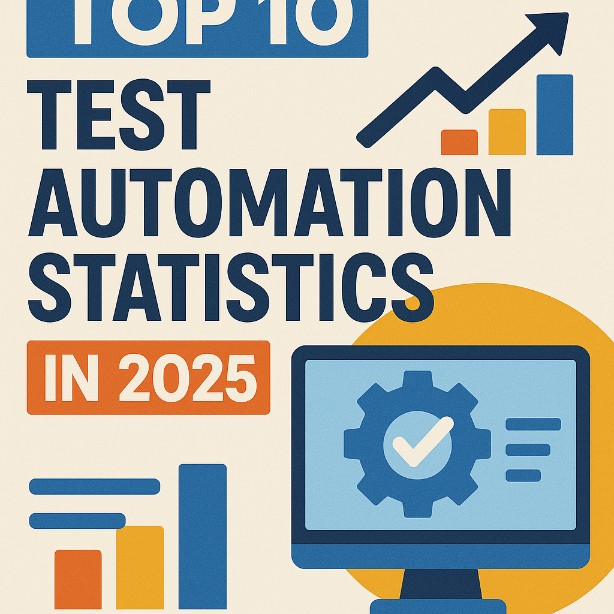Navigating the ever-evolving landscape of cloud computing can be daunting, especially when trying to balance flexibility, security, and cost-effectiveness. Hybrid cloud solutions offer the best of both worlds by combining on-premises infrastructure with the scalability of the cloud. Whether you’re a non-technical business owner, a software engineer, a student, a product owner, part of a web agency, or involved in DevOps, understanding hybrid cloud options is crucial for optimizing your operations.
In this article, we’ll explore the 12 Best Hybrid Cloud Solutions Reviewed For 2025, providing insights that cater to both beginners and those looking to dive deeper into technical specifics. From comprehensive monitoring tools to enterprise-grade solutions, we’ve got you covered.
Is Your Infrastructure Ready for Global Traffic Spikes?
Unexpected load surges can disrupt your services. With LoadFocus’s cutting-edge Load Testing solutions, simulate real-world traffic from multiple global locations in a single test. Our advanced engine dynamically upscales and downscales virtual users in real time, delivering comprehensive reports that empower you to identify and resolve performance bottlenecks before they affect your users.
Quick Overview: 12 Best Hybrid Cloud Solutions for 2025
- LoadFocus – Comprehensive cloud-based load testing and monitoring.
- BlazeMeter – Continuous performance testing and monitoring.
- NeoLoad – Enterprise-grade load testing.
- Microsoft Azure – Versatile hybrid cloud services with extensive integration.
- Amazon Web Services (AWS) Outposts – Extending AWS infrastructure on-premises.
- Google Anthos – Managing applications across hybrid environments.
- IBM Cloud Pak for Multicloud Management – Unified management for hybrid clouds.
- VMware Cloud Foundation – Integrated hybrid cloud platform.
- Oracle Cloud@Customer – Oracle’s hybrid cloud solution for on-premises needs.
- Red Hat OpenShift – Kubernetes-based hybrid cloud platform.
- Dell Technologies Cloud – Comprehensive hybrid cloud solutions for enterprises.
- HPE GreenLake – Flexible hybrid cloud services with pay-per-use.
Detailed Reviews of the Top Hybrid Cloud Solutions
1. LoadFocus
Category: Comprehensive Cloud-Based Load Testing and Monitoring
LoadFocus stands out with its robust load testing capabilities, ensuring your applications can handle high traffic and perform optimally. Its cloud-based platform allows for seamless integration with your existing infrastructure, making it an ideal choice for businesses looking to maintain performance without extensive overhead.
Key Features:
Think your website can handle a traffic spike?
Fair enough, but why leave it to chance? Uncover your website’s true limits with LoadFocus’s cloud-based Load Testing for Web Apps, Websites, and APIs. Avoid the risk of costly downtimes and missed opportunities—find out before your users do!
- Cloud-Based Load Testing: Simulate real-world traffic scenarios from multiple geographic locations.
- API Monitoring: Ensure your APIs are performing reliably under load.
- Real-Time Analytics: Gain insights into performance metrics as tests run.
Best For: Small to medium-sized businesses seeking reliable load testing without the complexity of managing infrastructure.
2. BlazeMeter
Category: Continuous Performance Testing and Monitoring
BlazeMeter offers a scalable solution for continuous performance testing, enabling teams to integrate testing seamlessly into their CI/CD pipelines. Its user-friendly interface and extensive integration options make it a favorite among developers and DevOps professionals.
Key Features:
LoadFocus is an all-in-one Cloud Testing Platform for Websites and APIs for Load Testing, Apache JMeter Load Testing, Page Speed Monitoring and API Monitoring!
- CI/CD Integration: Easily incorporate performance tests into your development workflow.
- Scalability: Handle large-scale tests with thousands of virtual users.
- Comprehensive Reporting: Detailed reports help identify and resolve performance bottlenecks.
Best For: Development teams and DevOps professionals focused on maintaining high performance throughout the development lifecycle.
3. NeoLoad
Category: Enterprise-Grade Load Testing
NeoLoad is designed for enterprises that require rigorous load testing to ensure their applications can handle significant user loads. Its advanced features cater to complex environments, providing detailed insights and robust automation capabilities.
Key Features:
- Advanced Scripting: Create complex test scenarios with ease.
- Integration with DevOps Tools: Seamlessly integrate with Jenkins, Git, and other tools.
- Real-Time Performance Monitoring: Monitor application performance in real-time during tests.
Best For: Large enterprises needing comprehensive load testing solutions with advanced features and integrations.
4. Microsoft Azure
Category: Versatile Hybrid Cloud Services
Microsoft Azure offers a broad range of hybrid cloud services that integrate seamlessly with on-premises environments. Its comprehensive toolset supports various workloads, providing flexibility and scalability for businesses of all sizes.
Key Features:
- Azure Arc: Manage and secure your resources across on-premises, multi-cloud, and edge environments.
- Hybrid Virtual Machines: Extend your on-premises infrastructure to the cloud.
- Azure Stack: Deploy Azure services in your data center for consistent hybrid operations.
Best For: Organizations deeply invested in Microsoft ecosystems seeking extensive integration and flexibility.
5. Amazon Web Services (AWS) Outposts
Category: Extending AWS Infrastructure On-Premises
AWS Outposts brings native AWS services, infrastructure, and operating models to virtually any data center or on-premises facility. This solution ensures consistent hybrid cloud experiences, making it easier to build and manage applications.
Key Features:
- Seamless Integration: Extend AWS services and APIs to your on-premises environment.
- Consistent Operations: Maintain the same tools and processes across cloud and on-premises.
- Low Latency: Deploy applications closer to your end-users for improved performance.
Best For: Businesses looking to extend their AWS environment on-premises for a unified hybrid cloud experience.
6. Google Anthos
Category: Managing Applications Across Hybrid Environments
Google Anthos is a modern application management platform that enables organizations to manage applications across multiple environments, including on-premises and other cloud providers. Its Kubernetes-based architecture ensures flexibility and scalability.
Key Features:
- Multi-Cloud Support: Manage workloads across Google Cloud, AWS, Azure, and on-premises.
- Kubernetes Integration: Leverage Kubernetes for container orchestration.
- Service Mesh: Implement secure, reliable, and observable communication between services.
Best For: Companies seeking a flexible, Kubernetes-based solution to manage applications across diverse environments.
7. IBM Cloud Pak for Multicloud Management
Category: Unified Management for Hybrid Clouds
IBM Cloud Pak for Multicloud Management provides a comprehensive suite of tools to manage, monitor, and secure applications across hybrid and multi-cloud environments. Its integrated approach simplifies operations and enhances visibility.
Key Features:
- Centralized Management: Monitor and manage all your cloud resources from a single dashboard.
- Automation: Automate routine tasks to improve efficiency.
- Security and Compliance: Ensure your environments meet industry standards and regulations.
Best For: Enterprises needing a unified management platform to oversee complex hybrid and multi-cloud infrastructures.
8. VMware Cloud Foundation
Category: Integrated Hybrid Cloud Platform
VMware Cloud Foundation offers a unified platform for deploying and managing hybrid cloud environments. Its integrated approach combines compute, storage, networking, and cloud management into a single solution.
Key Features:
- Unified Infrastructure: Simplify management with integrated compute, storage, and networking.
- Automation: Streamline operations with automated deployment and management.
- Scalability: Easily scale your infrastructure to meet growing demands.
Best For: Businesses already using VMware products looking for a seamless transition to a hybrid cloud environment.
9. Oracle Cloud@Customer
Category: Oracle’s Hybrid Cloud Solution
Oracle Cloud@Customer brings Oracle Cloud services directly into your data center, providing the benefits of cloud computing while maintaining data residency and compliance. This solution is ideal for organizations with stringent data requirements.
Key Features:
- Data Residency: Keep sensitive data on-premises while leveraging cloud capabilities.
- Full Oracle Cloud Services: Access the same services available in Oracle’s public cloud.
- Managed Services: Benefit from Oracle-managed infrastructure and support.
Best For: Organizations requiring cloud services with strict data residency and compliance needs.
10. Red Hat OpenShift
Category: Kubernetes-Based Hybrid Cloud Platform
Red Hat OpenShift is a leading Kubernetes-based platform that simplifies the deployment, management, and scaling of containerized applications across hybrid environments. Its robust features support both developers and operations teams.
Key Features:
- Kubernetes Integration: Native support for Kubernetes orchestration.
- Developer Tools: Streamlined workflows and tools for application development.
- Enterprise Security: Built-in security features to protect your applications and data.
Best For: Development teams and enterprises seeking a powerful, Kubernetes-based platform for managing containerized applications.
11. Dell Technologies Cloud
Category: Comprehensive Hybrid Cloud Solutions
Dell Technologies Cloud offers a suite of hybrid cloud solutions designed to simplify cloud adoption and management. Its integrated approach ensures seamless connectivity between on-premises and cloud environments.
Key Features:
- Unified Management: Manage all your cloud resources through a single interface.
- Flexibility: Choose from a variety of deployment options to suit your needs.
- Security: Robust security measures to protect your data across environments.
Best For: Enterprises looking for a comprehensive, flexible hybrid cloud solution with strong support and security features.
12. HPE GreenLake
Category: Flexible Hybrid Cloud Services
HPE GreenLake provides a consumption-based hybrid cloud model, allowing businesses to scale their IT resources based on demand. Its pay-per-use approach offers financial flexibility while delivering robust performance.
Key Features:
- Consumption-Based Pricing: Pay only for the resources you use.
- Scalability: Easily scale resources up or down to meet changing needs.
- Managed Services: Comprehensive support and management services to handle infrastructure.
Best For: Businesses seeking financial flexibility and scalability in their hybrid cloud solutions without long-term commitments.
Frequently Asked Questions
What is a hybrid cloud solution?
A hybrid cloud solution combines on-premises infrastructure with public and/or private cloud services, allowing data and applications to be shared between them. This approach offers greater flexibility, scalability, and optimization of existing resources.
Is AWS a hybrid cloud?
Yes, AWS offers hybrid cloud solutions through services like AWS Outposts, which extend AWS infrastructure and services to on-premises environments, enabling a seamless hybrid experience.
What is a hybrid solution?
A hybrid solution typically refers to a combination of different technologies or services that work together to provide a more comprehensive and flexible approach. In the context of cloud computing, it refers to integrating on-premises and cloud-based resources.
Is Azure a hybrid cloud?
Absolutely. Microsoft Azure is a leading provider of hybrid cloud solutions, offering tools like Azure Arc and Azure Stack that enable seamless integration between on-premises infrastructure and the Azure cloud.
Is Netflix a hybrid cloud?
Netflix primarily operates on a cloud-native architecture using Amazon Web Services (AWS). While they leverage multiple AWS services extensively, they are not typically categorized as a hybrid cloud user since their infrastructure is predominantly cloud-based.
What is a real example of hybrid cloud?
A real example of a hybrid cloud is a company running its core applications on a private data center while utilizing public cloud services for handling peak loads, backup, and disaster recovery. This setup allows the company to maintain control over sensitive data while benefiting from the scalability of the public cloud.
Conclusion
Choosing the right hybrid cloud solution is pivotal for businesses aiming to optimize their IT infrastructure, enhance scalability, and ensure robust security. The 12 Best Hybrid Cloud Solutions Reviewed For 2025
offer a range of options tailored to different needs, from comprehensive monitoring and load testing to enterprise-grade platforms and flexible, consumption-based services. By evaluating your specific requirements and leveraging these top solutions, you can create a hybrid cloud environment that not only meets your current demands but also scales seamlessly with your growth.
Additionally, many of these platforms allow you to easily import templates and customize tasks using AI, giving you the flexibility to adapt your hybrid cloud strategy as your business evolves. Whether you’re looking to add new tasks and subtasks, change ambient settings, or modify background visuals, these solutions provide the tools you need to create a tailored and efficient hybrid cloud environment.




